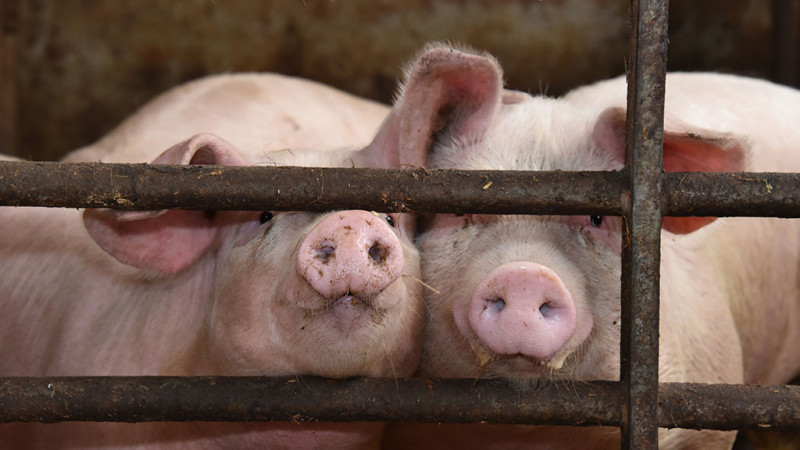EU lawmakers seek a ban on caged farming following citizens’ initiative

EU lawmakers seek a ban on caged farming following citizens’ initiative
Reuters reports that the EU assembly approved a report asking the European Commission to propose legislation to phase out the use of cages in EU animal farming, possibly by 2027.
The advisory vote was prompted by a citizens’ initiative that drew 1.4 million signatures.
The phase-out should be based on the different needs of each species, the Parliament said.
It also asked the Commission to propose a ban on “cruel and unnecessary” force-feeding of ducks and geese, which is done to fatten the birds’ liver for foie gras, a delicacy popular in France.
“Acting to improve the welfare of animals is an ethical, social, and economic imperative,” EU health commissioner Stella Kyriakides said.
The Commission would need to propose a ban, which would then need approval from EU member states and the Parliament. It is currently reviewing the bloc’s animal welfare legislation.
EU animal welfare standards are among the world’s highest, including restrictions already on some caged farming. It banned tightly packed battery cages for hens in 2012, while allowing “furnished” cages that provide more space and features such as perches. Countries including Austria and Luxembourg have banned all hen cages, while other countries plan to do so this decade.
Still, more than 90% of the EU’s farmed rabbits are housed in cages, and in 2019 half of laying hens were kept in cages, Parliament said. Parliament said there were “grave concerns” about conditions in farming where animals lack the space to stand fully or turn around.
Parliament said the EU must also ensure farmers have sufficient financial support to help them invest in higher welfare standards. Animal products imported into the EU should also comply with the bloc’s standards, it said.
Copa and Cogeca, a major farming union in the trading bloc, voiced its support to the measure, but stressed that the European Parliament must focus on implementing cage bans and reconciling its welfare aims with the realities of farming and economic policy.
In a press release, Copa and Cogeca said that the “end the cage age” initiative has multiple dimensions and is too complex to be reduced to a punch line. They warned that the public debate on caged farming should focus on agricultural imports to the EU trading bloc. Copa and Cogeca noted that animal welfare standards in third countries “cannot generally be verified”, posing a challenge to EU poultry and pig producers who invest and transition to non-caged farming.
The European Commission will have to demonstrate how we will avoid double standards in our imports but also how we will effectively protect small farmers for which those adaptions will be very sensitive and how we will keep food prices stable.
PEKKA PESONEN, COPA AND COGECA’S SECRETARY GENERAL
“The EU Parliament asks the Commission to re-evaluate the trade agreements already signed in the light of any developments on cage issues. However, will this be feasible in time when we have over 60 bi-lateral agreements already signed?” Copa and Cogeca said.
Copa and Cogeca’s Secretary General Pekka Pesonen commented, “This parliamentary resolution shows the limits of the initiative. Farmers are ready to make more investments but not at the cost of their survival. The response to this initiative will pose major problems of coherence in the European action. The European Commission will have to demonstrate how we will avoid double standards in our imports but also how we will effectively protect small farmers for which those adaptions will be very sensitive and how we will keep food prices stable.”
“The European Commission must take into account that the different livestock sectors have diverse needs and economic preconditions, both in terms of producer prices and necessary investments.”
The EU farming union echoed the European Parliament’s call for the Commission to conduct a comprehensive and evidence-based impact assessment before setting a phase-out date for caged farming.
Read also
Wheat in Southern Brazil Impacted by Dry Weather and Frosts
Oilseed Industry. Leaders and Strategies in the Times of a Great Change
Black Sea & Danube Region: Oilseed and Vegoil Markets Within Ongoing Transfor...
Serbia. The drought will cause extremely high losses for farmers this year
2023/24 Safrinha Corn in Brazil 91% Harvested
Write to us
Our manager will contact you soon



